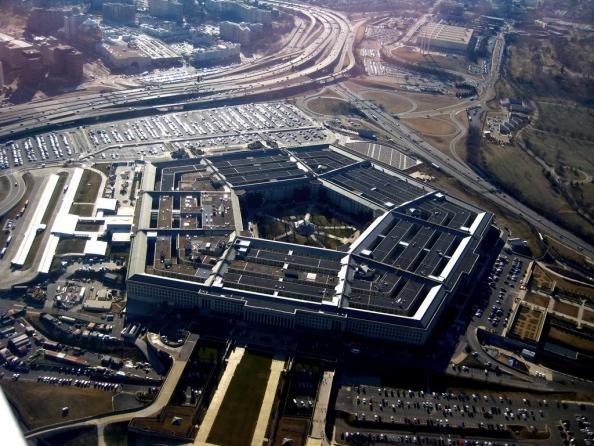As the likelihood of the US Congress repealing Don’t Ask, Don’t Tell grows, the Pentagon has been consulting with other countries that allow queers to serve openly.
Canadian lawyer Doug Elliott was suggested to Pentagon officials by an American law professor familiar with his work on queer cases in Canada.
“It came out of the blue for me,” Elliott says. “I was aware that President Obama had suggested that they should be looking at repealing Don’t Ask, Don’t Tell, but I really wasn’t watching the process all that closely.”
After a 30-minute phone call with several of the team members from the Pentagon, Elliott mentioned that he would be travelling to Washington DC at the end of the month with Egale Canada’s Helen Kennedy to attend a fundraiser for the Williams Institute at the Canadian Embassy, and that the pair could meet the Pentagon’s team in person while in town. The officials agreed.
Elliott and Kennedy arrived at the Pentagon on May 26.
“We were kind of the odd couple in the Pentagon, I think, but we were very graciously received by the team,” Elliott says. “They had representatives from all of the services at the Pentagon, except for the Coast Guard. There was someone from the Marines, the Air Force, the Army, and the Navy including two full colonels, so they were taking it pretty seriously.”
Elliott had prepared a binder of materials from Canadian academics on queer rights and brought along a copy of Gary Kinsman’s book The Canadian War on Queers. He flagged the chapter on the end of the ban on gays and lesbians serving in the Canadian Forces.
Over lunch in the Pentagon dining room, the discussions in particular turned to that chapter in Kinsman’s book and the particular difficulties around security clearances in the transition period to an accepting military.
“So many jobs in the military require security clearances, so prior to that, they had to keep their lives well and truly in the closet,” Elliott says. “Now suddenly if they kept their lives in the closet, they wouldn’t get their security clearance because they would be considered a threat, so I put it to the Pentagon folks that a lot of people in the military are going to go from ‘Don’t Ask, Don’t Tell’ one day, to ‘must ask, must tell’ the next day because of security clearances.
“In order to be on this committee, they had all just gone through the security clearance process, so they were all painfully aware of how probing it was, and it clearly gave them a lot of food for thought.”
For her part, Kennedy found the trip fascinating.
“They were very receptive, very gracious, and really I got the impression it was just a matter of time before the legislation comes into effect,” Kennedy says. “It was a very good meeting. It was a bit odd in that we spent two or three hours, and we never really got a sense of exactly what it was that they were looking for.
“Doug gave them some excellent information — legal information with respect to the Canadian perspective. I talked more about the lived realities of what it means to be queer in Canada, and some of the cases that we’re looking at here from people in the military.”
Kennedy says that until their conversation, the Pentagon officials hadn’t considered trans issues.
“I brought up the whole issue of what happens when someone wants to transition in the military, how are they going to handle that?” Kennedy says. “They hadn’t even got their heads around that, at all.”
The Canadian Forces has paid for sex reassignment surgery in several cases.
When asked what discussions the Canadian Forces have had with the Pentagon on this issue, a spokesperson at National Defence headquarters emailed the following:
“Please note that on May 19, 2010, the CF have sent a delegation to Washington, DC to participate in the Brookings Palm Institute panel discussion on the subject of the DADT policy in the American military. Canada maintains bi-lateral discussions with the US on a number of issues. As it would be inappropriate for the Canadian Forces to comment on the policies of other militaries, we are unable to comment further.”
While the issues around chaplains in the US armed forces appears to be more contentious than it was in the Canadian Forces, the biggest message that Elliott says of the Canadian experience is that things happened with relative ease.
“The whole parade of horrors that was trotted out in Canada before the ban ended — about the terrible things that were going to happen in showers and on submarines and things like that — none of that materialized,” Elliott says. “All of this stuff about the problems it would cause on the battlefield just didn’t come up.”


 Why you can trust Xtra
Why you can trust Xtra


